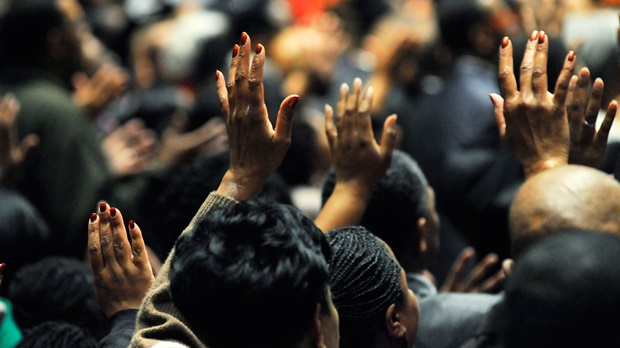
The black church is facing the reality of spiritual alternatives and growing non-affiliation through more aggressive evangelism and greater use of technology, according to scholars. In a lecture at Princeton University attended by RW in late February (via Zoom), sociologist Jacqueline Rivers of the Seymour Institute for Black Church and Policy Studies argued that many of the same de-Christianizing forces that have challenged white churches have arrived at the doors of the African American community. She cited figures from the Pew Research Center showing a rising rate of black non-affiliation, even though black Millennials remain more religious than other Millennials (64 percent versus 39 percent, respectively). It is largely issues of sexuality that have convinced many younger African American Christians to walk away from their churches, with 31 percent of these young adults saying that the churches’ treatment of LGBT issues caused them to leave. Another objection that younger non-affiliated blacks have against the black church is that it is not relevant to the current situation, pointing to the lack of church leadership in the Black Lives Matter (BLM) protests in recent years.
Rivers notes how the rise of non-affiliation has led to other trends that are also evident among white “nones,” such as the emergence of “black witches” who adopt Neopagan Yoruban spirituality and practices. Such practitioners use crystals and burn sage, preferring to confine their activities to the Internet where they can escape the scrutiny of family and older members of the black church. Among young black male nones, the growth of “drill rap,” where videos of violent and sometimes murderous confrontations accompany rap music, has taken on quasi-religious overtones. Such actual violent events are called “demon time,” referring to a time of the night when evil is done. Some drill rappers refer to themselves as demons and embrace that identity, according to Rivers. She concludes that black churches will have to show that they are far removed from white supremacy, citing the ministry of Lisa Fields of Jude 3 Project, which teaches black young people theology and apologetics, seeks to bring together right and left, and addresses issues over which black nones have been leaving the church.
In her new book Networking the Black Church (NYU Press), Erika D. Gault argues that many younger African Americans have not so much left the church behind as sought out faith in unconventional places, not least through hip hop music, video-sharing, and social media. Gault, a professor at the University of Arizona who counts herself among these “digital black Christians,” writes that in the last decade, the wall between hip hop culture with its online expressions and the black church has broken down. The author provides a fascinating “auto-ethnography” in the book’s preface, telling how she made the transition from a strict Pentecostal-Holiness church where rap and hip hop were referred to as “the devil’s music” to being an unchurched poet who felt that the church was irrelevant, and then back again to an active churchgoer and deacon in a black congregation that freely draws on hip hop culture. Based on interviews and participant observation in these spaces where hip hop and Christianity intersect, Gault provides an interesting account of how the young black church is related to the digital networks that include black Christian performers (often Twitter, YouTube and Instagram personalities) and laypeople.
These networks provide intimacy through such values as “relationships, identity, visibility, and valuation,” which share in both contemporary ideas about blackness and evangelically oriented (often conservative) church practices and theology. This could be seen in how respondents both embraced and repudiated the black church tradition, making the tradition itself more fluid and less institutional (especially since the pandemic). The black church tradition provides a linguistic style and an “imagined community” for digital black Christians, even as they expand the repertoire to include current concerns with marginalization, racism, and black identity in general (while having a complicated relationship with the BLM movement). Gault criticizes the tendency, often by fellow black hip hop artists, to downplay or dismiss as retrogressive and patriarchal the conservative views on gender and sexuality prevalent among these digital black Christians and expressed by performers such as Lecrae (who is featured in a biographical first chapter) and Jackie Hill Perry. She argues that such dismissive attitudes towards these views (such as, for instance, a complementarian rather than egalitarian view of marriage) fail to take seriously the lived experiences and faith of these digital black Christians. In fact, Gault pays special attention to the way many of these young performers and laypeople have embraced conservative Reformed Christian teachings and theology. As for actual affiliation and participation in the black church, the younger generation of black Christians has driven both its expansion, leading black church planting networks such as Blueprint Atlanta, for example, and its digitalization, which, for all churches and congregations post-Covid, carries an uncertain future for institutional religion.
 Source: Black Perspectives (AAIHS).
Source: Black Perspectives (AAIHS).